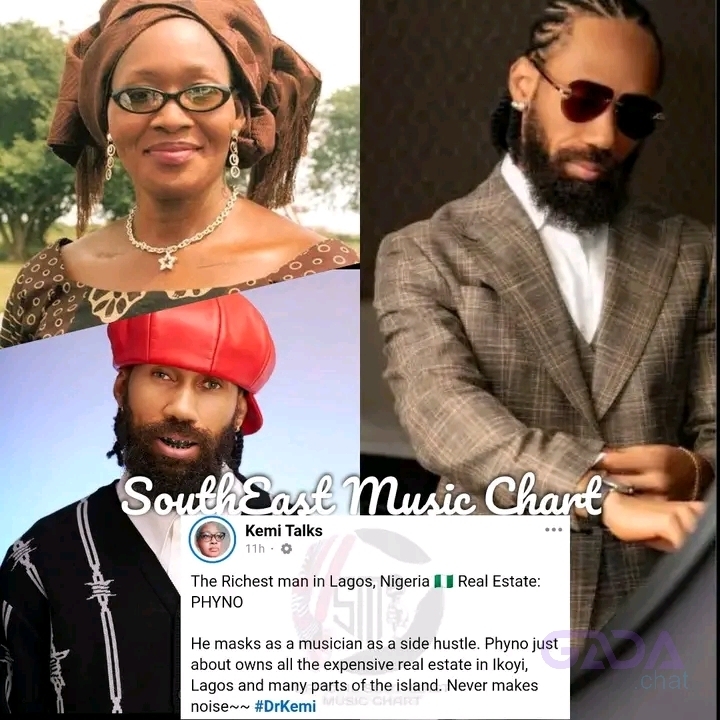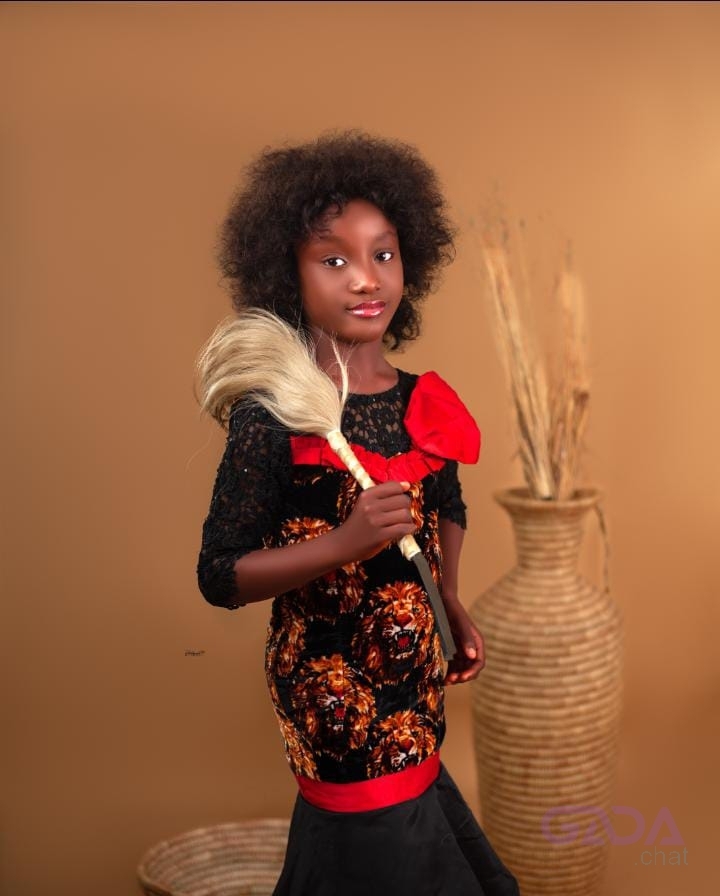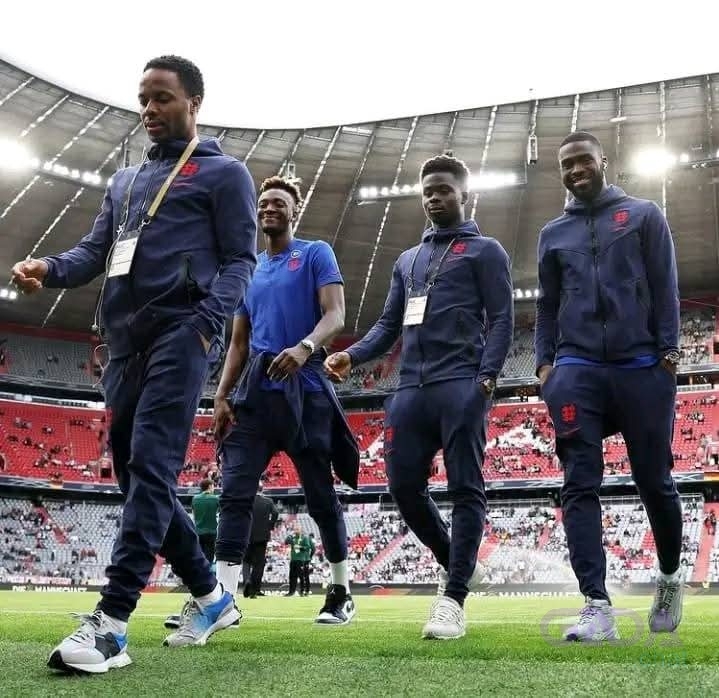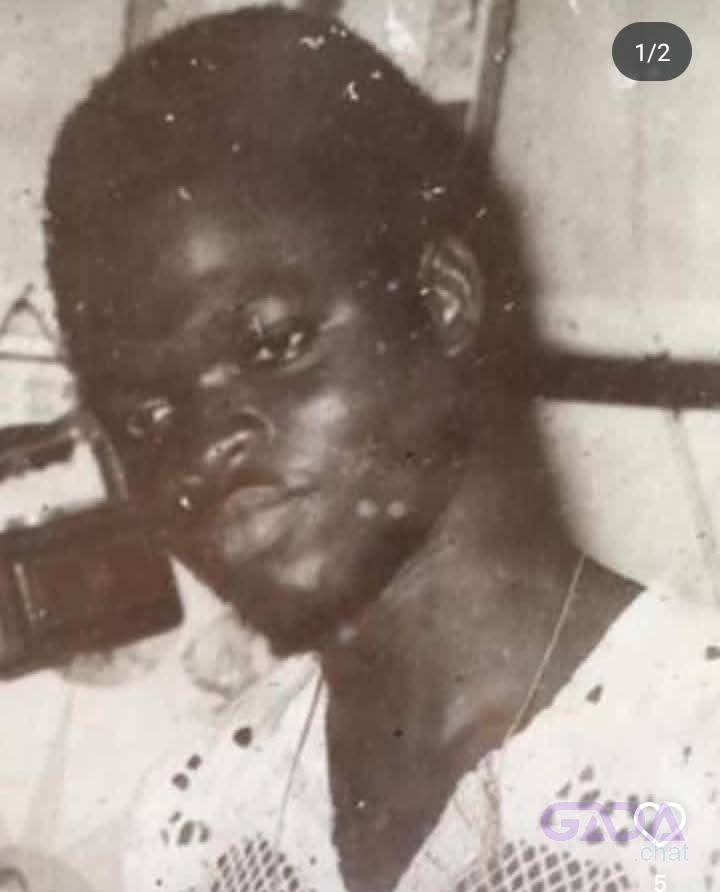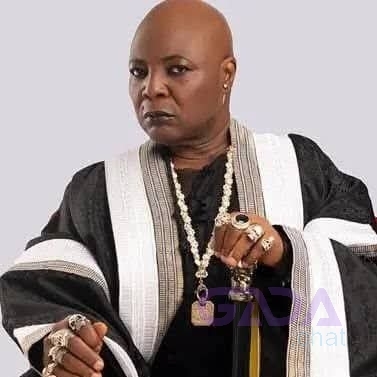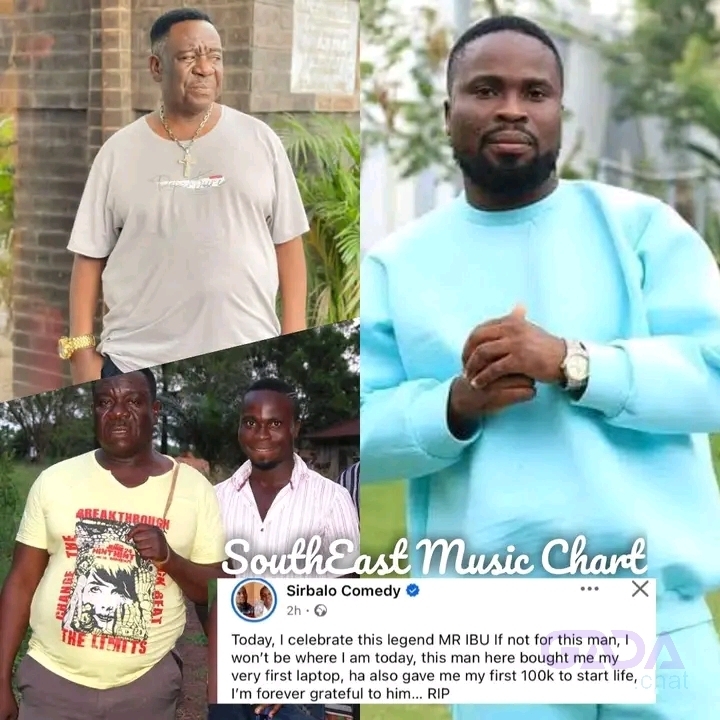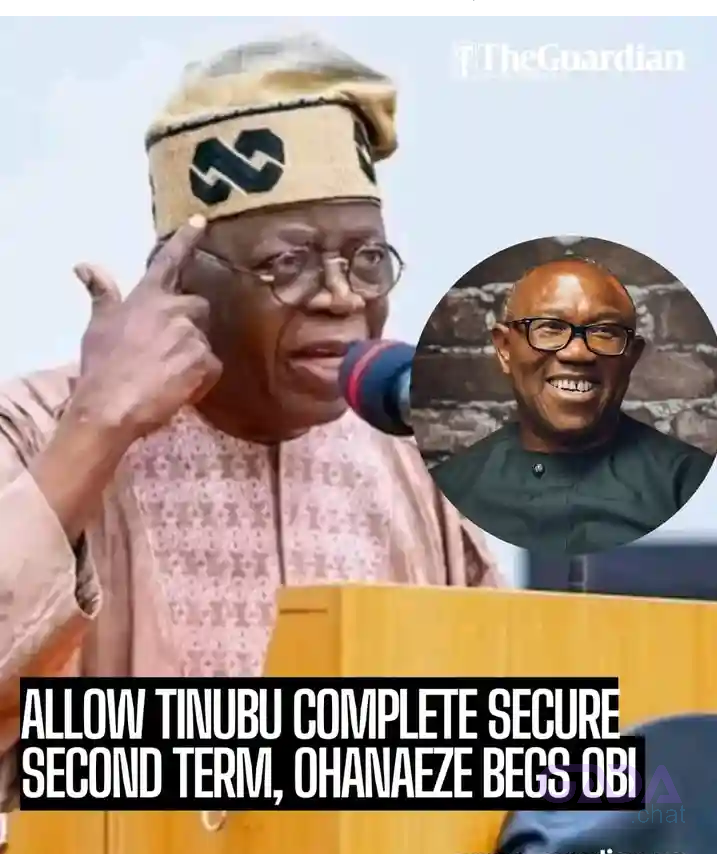𝗣𝗛𝗬𝗡𝗢 As The Richest Man In Lagos State & Owns All The Expensive Real Estates In Ikoyi - Nigerian Journalist 𝗞𝗘𝗠𝗜 𝗢𝗟𝗨𝗡𝗟𝗘𝗬𝗢 Reveals
Controversial Nigerian Journalist and Social critic, Dr. Kemi Olunleyo in her recent post, declared Nigerian Rap Heavyweight -- Phyno as the Richest Man In Lagos State.
She claimed that PHYNO FINO owns all the Expensive Real Estates in Ikoyi Lagos and many parts of Lagos Island.
In her post she quoted; “My housemaid works harder than me , she cleans and does everything but her money can’t be compared to mine. I noticed she might never build a house just with that amount, I had to send her to UK to hustle. The grace is different, help people when you can “ ~~ Chibuzo Nelson Azubuike (Phyno)
EZEGE FOR A REASON
Follow Our Page SouthEast Music chart 🙌🏾🙏🏾
#afrobeats #ikoyi #igbo #lagos #nigeria #anambra #enugu #music #olamide #Kemitalks #igborap #fy
Controversial Nigerian Journalist and Social critic, Dr. Kemi Olunleyo in her recent post, declared Nigerian Rap Heavyweight -- Phyno as the Richest Man In Lagos State.
She claimed that PHYNO FINO owns all the Expensive Real Estates in Ikoyi Lagos and many parts of Lagos Island.
In her post she quoted; “My housemaid works harder than me , she cleans and does everything but her money can’t be compared to mine. I noticed she might never build a house just with that amount, I had to send her to UK to hustle. The grace is different, help people when you can “ ~~ Chibuzo Nelson Azubuike (Phyno)
EZEGE FOR A REASON
Follow Our Page SouthEast Music chart 🙌🏾🙏🏾
#afrobeats #ikoyi #igbo #lagos #nigeria #anambra #enugu #music #olamide #Kemitalks #igborap #fy
𝗣𝗛𝗬𝗡𝗢 As The Richest Man In Lagos State & Owns All The Expensive Real Estates In Ikoyi - Nigerian Journalist 𝗞𝗘𝗠𝗜 𝗢𝗟𝗨𝗡𝗟𝗘𝗬𝗢 Reveals🎵♥️👑
Controversial Nigerian Journalist and Social critic, Dr. Kemi Olunleyo in her recent post, declared Nigerian Rap Heavyweight -- Phyno as the Richest Man In Lagos State.
She claimed that PHYNO FINO owns all the Expensive Real Estates in Ikoyi Lagos and many parts of Lagos Island.
In her post she quoted; “My housemaid works harder than me , she cleans and does everything but her money can’t be compared to mine. I noticed she might never build a house just with that amount, I had to send her to UK to hustle. The grace is different, help people when you can “ ~~ Chibuzo Nelson Azubuike (Phyno)
EZEGE FOR A REASON 👑♥️
Follow Our Page SouthEast Music chart ❤️🙌🏾🙏🏾
#afrobeats #ikoyi #igbo #lagos #nigeria #anambra #enugu #music #olamide #Kemitalks #igborap #fy
0 Reacties
0 aandelen
157 Views
0 voorbeeld




